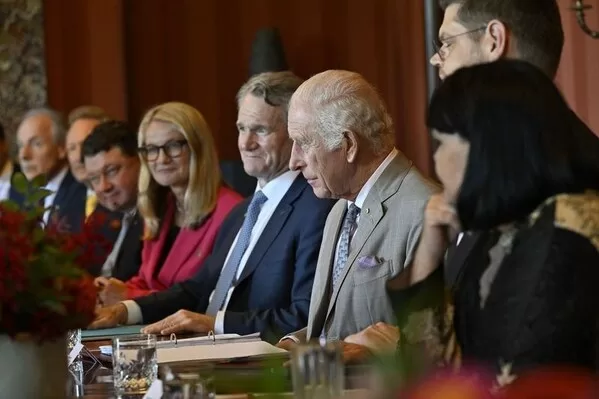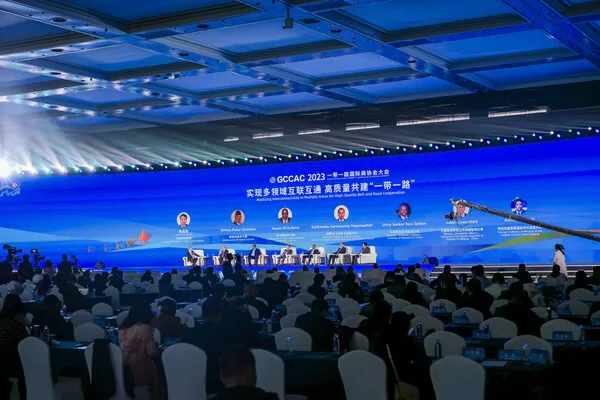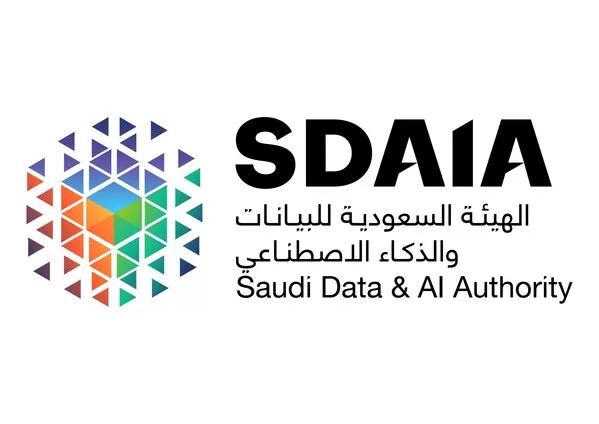In support of His Majesty King Charles III’s visits to Australia and Samoa, for the Commonwealth Heads of Government Meeting (CHOGM), SMI launches further support for Commonwealth Member States…
Foreign Languages Press: China’s active role in promoting human rights within the framework of global governance
BEIJING, Dec. 6, 2023 — The Foreign Languages Press recently invited a panel of scholars to evaluate its multi-language publication titled "Xi Jinping:…
Dialogue, cooperation the only right choice for China, U.S.
BEIJING, Nov. 26, 2023 — A report from People’s Daily: "No way you make progress over the long term without China and the U.S. deeply talking to each other…
Global Times: BRI offers common development: officials from partner countries
WENZHOU, China, Nov. 23, 2023 — The China proposed Belt and Road Initiative (BRI) has brought the vision of "heart connectivity" to reality, and it is a path to…
CGTN: China, Zambia elevate ties to comprehensive strategic cooperative partnership
BEIJING, Sept. 18, 2023 — China and Zambia announced their decision on Friday to elevate bilateral ties to a comprehensive strategic cooperative partnership, with both sides hailing their "profound"…
CGTN: China pledges practical support for developing countries at global financing summit
BEIJING, June 25, 2023 — China would continue to take practical steps to support its fellow developing countries, Chinese Premier Li Qiang said on Friday at the closing ceremony of…
CCTV+: Xi dedicated to people-oriented governance in political career
BEIJING, June 17, 2023 — Storyline: Chinese President Xi Jinping has been dedicated to the cause of making people’s life better in his political career so far. With a…
SDAIA and World Bank Group Meet and Discuss the Kingdom’s Global Role in Digital Development Policies
RIYADH, Saudi Arabia, June 13, 2023 — His Excellency Dr. Esam A. Alwagait, Director General of National Information Center at the Saudi…
UAE Ministry of Interior Launches Pioneering Strategy to Use AI to Protect Children Online
The UAE Ministry of Interior launches new Child Protection Strategy to tackle the surge of online child abuse at the United Nations Human Rights Council’s 43rd Session of the…
Promoting Chinese culture to the world
BEIJING, March 5, 2023 — A news report from chinadaily.com.cn: jwplayer.key=”3Fznr2BGJZtpwZmA+81lm048ks6+0NjLXyDdsO2YkfE=” jwplayer(‘myplayer1’).setup({file: ‘https://mma.prnasia.com/media2/2015990/Promoting_Chinese_culture_to_the_world.mp4’, image: ‘http://www.prnasia.com/video_capture/4032189_CN32189_1.jpg’, autostart:’false’, aspectratio: ’16:9′, stretching : ‘fill’,…







